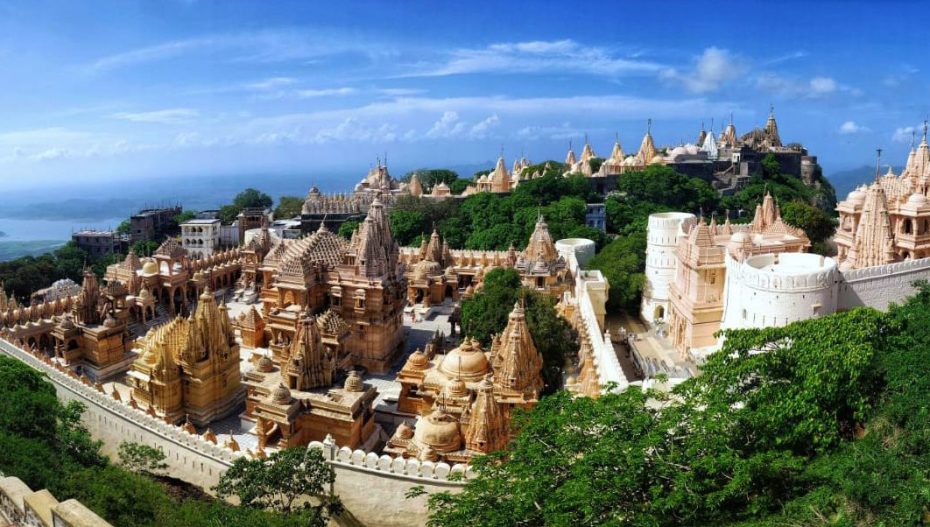Palitana town in Bhavnagar district of Gujarat has become the first city in the world to ban non-vegetarian food. This decision was taken after the city made the sales and consumption of meat as well as the butchering of animals for meat illegal and punishable by law.
Palitana is one of the holiest pilgrimage places for the Jain community, and the place, which is located in the Shatrunjaya Hills, is also known as the Jain Temple Town, as there are an estimated 800 big and small Jain temples in and around town.
The most famous Jain temple is Adinath Temple, dedicated to Lord Adinath, who was the first Tirthankara of Jainism. This temple, along with a group of other temples in this region, has been one of the most important pilgrimage sites for the Jains, and it dates back to the 5th century AD.
According to some Jain texts, Palitana is one of those places where one can achieve Moksha. It is reported that there were persistent protests by around 200 Jain monks, who demanded the closure of approximately 250 butcher shops in the city.
The series of orders that regulate the sale of non-vegetarian food began in Rajkot. All of these orders prohibited the display and preparation of non-vegetarian food. Vadodara soon followed suit after which Junagadh and Ahmedabad also followed the same regulations in the city.
People who are against non-vegetarian food say that the display of meat hurts their sensitivity and sentiments and also impacts children negatively. Moreover, the Chief Minister of Gujarat linked this decision to reducing traffic congestion in the state. Well, this push to ban non-vegetarian food is not new in the state. Gujarat is the birthplace of Mahatma Gandhi, who advocated vegetarian food his whole life, and following his ideologies has been considered a duty by millions.
The Vaishnav Hindu culture of Gujarat influenced vegetarianism in the state. Close to 88.5% of the total population of the state is Hindu, Jain stands at 1%, and Muslims and Christians form a total of 10%. Vaishnavism is the predominant religious culture in the state.
This shift towards vegetarianism in Gujarat reflects the deep-rooted culture and history. It also shows the influence of historical figures like Mahatma Gandhi and the importance of religious places like Palitana.
Also Read: 4 Children Succumb To Chandipura Virus In Gujarat












